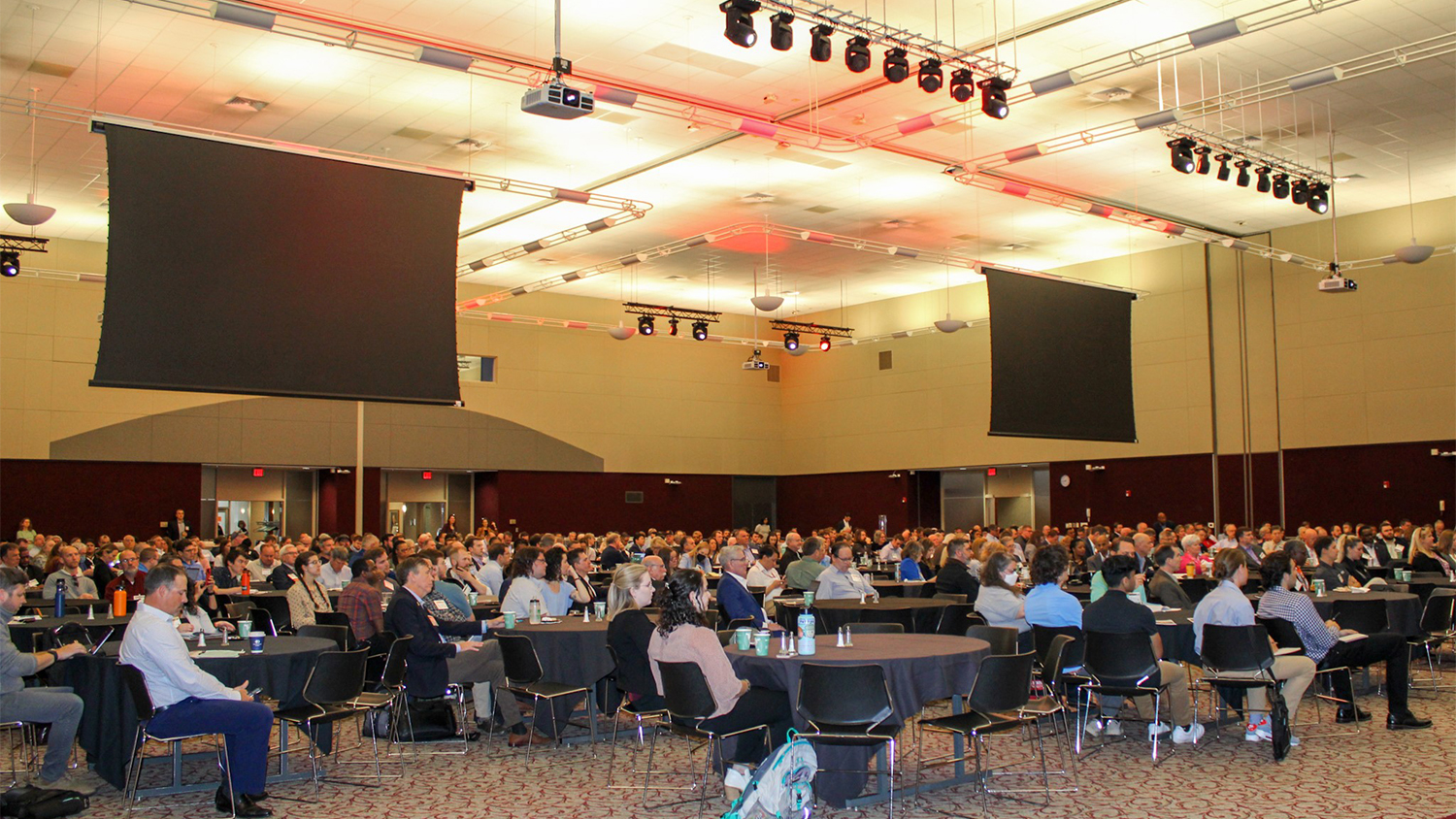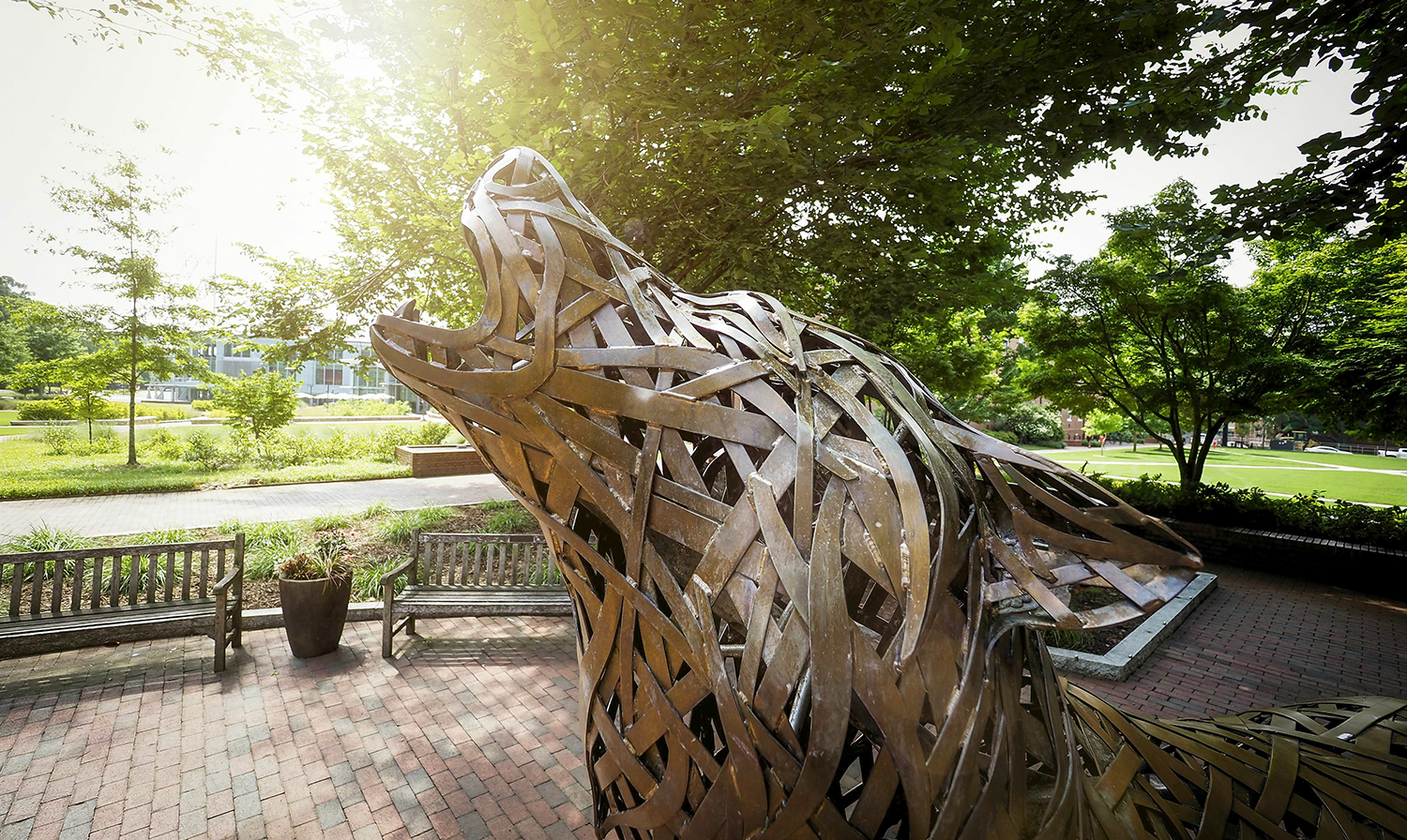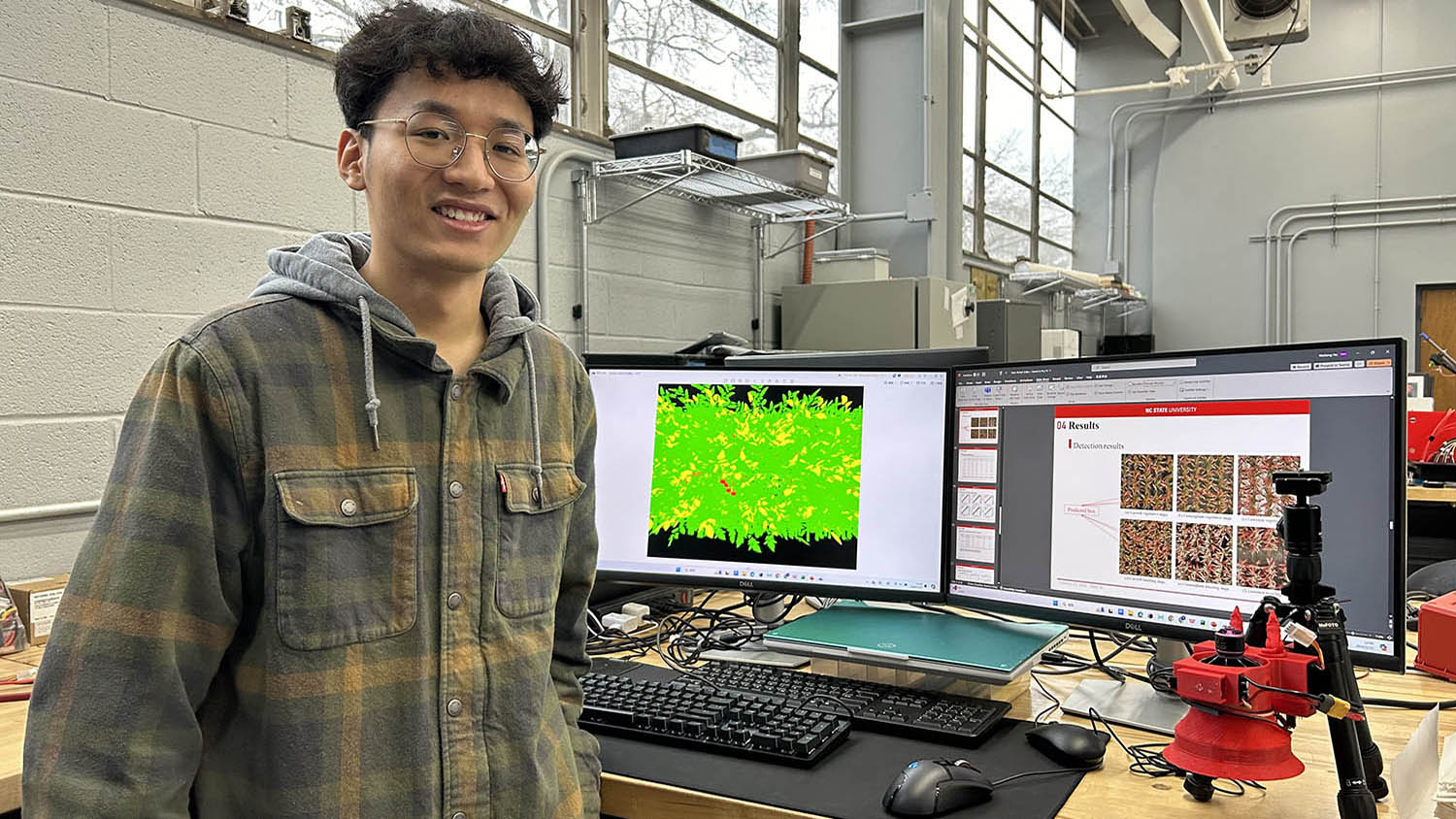Campus program for students with disabilities hosts governor
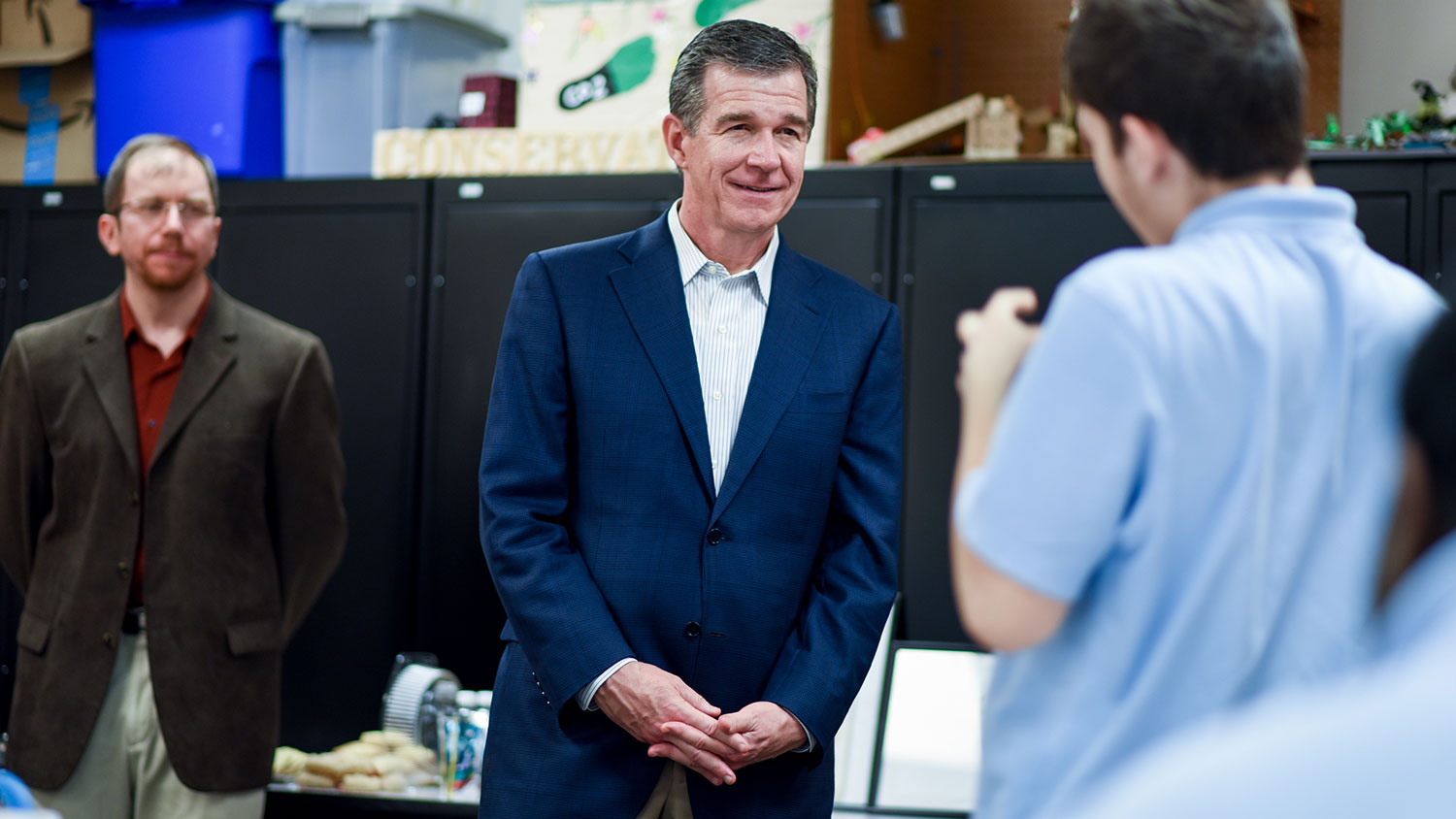
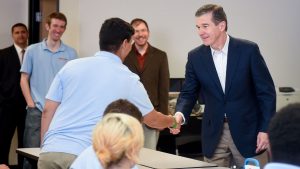
During a visit to NC State, Gov. Roy Cooper received ideas about improving educational opportunities for students with disabilities from an accomplished team of young inventors.
On Saturday, Cooper visited the Science House on NC State’s campus and learned about the Catalyst program, a collaborative effort that offers high school students with disabilities an opportunity to receive hands-on experience that will help them excel in science, technology, engineering and math (STEM) fields.
The program is run by Joann Blumenfeld, a local science teacher and former NC State Kenan Fellow who identified a need to open more opportunities for STEM education to high school students with disabilities ranging from autism to hearing impairment.
Students travel from as far as three hours away for sessions on Saturdays. The program has received support from NC State’s Colleges of Engineering, Veterinary Medicine, Sciences and Agricultural and Life Sciences.
Dr. Alper Bozkurt, an associate professor in the Department of Electrical and Computer Engineering (ECE), and graduate students from his research group have served as mentors for students in the program. Dr. Elena Veety, teaching assistant professor in ECE and education director for the National Science Foundation ASSIST Center led by NC State, is also involved as a volunteer in the program.
They started with a summer camp experience in 2016 that involved short courses on how to build computer apps. Then, they began a project that will send the students to Boston this summer as one of the top 15 teams in the Lemelson-MIT InvenTeams program for student inventors. The 12-student team is the first in the program’s history made up exclusively of students with disabilities.
With help from a $10,000 grant from Lemelson, the team has developed a system that detects whether a calf is limping, giving farmers a better way to determine which animals in a herd will require attention. After visits to the Cherry Research Farm in Goldsboro and the College of Veterinary Medicine, the students worked with Bozkurt and his students on programming commercially available sensors and attaching them to a mat that animals will stand on to produce a reading.
Evan Williams, a graduate student in Bozkurt’s research group, took part in outreach activities as an undergraduate student and wanted to continue as he worked on his graduate degree. He said that many of the students in the Catalyst program would not otherwise have an opportunity for STEM education.
“It is really rewarding to instill a passion for engineering and science into kids,” Williams said.
Williams, joined by fellow graduate students Talha Agcayazi and Marc Foster, will travel to Boston this summer with the Catalyst student team.
Bozkurt has gained national attention for his innovative work establishing the “internet of bionic things,” enabling animals to work in concert with mankind in new ways and creating innovative human health monitoring devices. He and his graduate students are no strangers to working with the public, helping out with NC State’s annual NanoDays event, with the university’s open house programs and with the Osher Lifetime Learning Institute.
“I think we have a reputation of outreach,” Bozkurt said. “Our projects are relatively easy to understand and have a high impact. It is both a responsibility and an opportunity to reach out.”
There are several benefits for the research group. Learning to explain engineering concepts to a general audience helps the graduate students understand their work at a fundamental level. The outreach itself gives Bozkurt and his students “external contacts from very smart people who want to work on our projects,” he said.
– lancaster –
- Categories:
